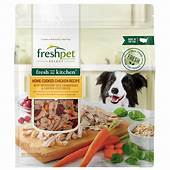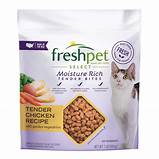Is Fresh Pet Good? A Comprehensive Analysis
In recent years, there has been a growing trend towards feeding pets fresh, natural food. This is due to a number of concerns about the quality of commercial pet food, which often contains fillers, preservatives, and other unhealthy ingredients.

Benefits of Fresh Pet Food
There are a number of benefits to feeding your pet fresh food, including:
1. Improved Digestion: Fresh food is easier for pets to digest than processed food, which can lead to fewer digestive problems, such as gas, bloating, and constipation.
2. Healthier Skin and Coat: Fresh food provides pets with the nutrients they need for healthy skin and coat, which can help to reduce itching, scratching, and shedding.
3. Stronger Immune System: Fresh food helps to boost pets' immune systems, making them less susceptible to illness.
4. Longer Lifespan: Studies have shown that pets that eat fresh food tend to live longer than those that eat processed food.
Disadvantages of Fresh Pet Food
There are also some disadvantages to feeding your pet fresh food, including:
1. Cost: Fresh food can be more expensive than processed food.
2. Preparation: Fresh food requires more preparation than processed food, which can be time-consuming.
3. Storage: Fresh food needs to be stored properly to prevent spoilage, which can be difficult if you don't have a lot of space in your refrigerator or freezer.
Is Fresh Pet Food Right for Your Pet?
Ultimately, the decision of whether or not to feed your pet fresh food is a personal one. There are both benefits and disadvantages to consider, and the best choice for your pet will depend on your individual circumstances.
If you're considering switching your pet to a fresh food diet, it's important to talk to your veterinarian first. Your vet can help you determine if fresh food is right for your pet and can provide you with guidance on how to make the switch safely.
Tips for Feeding Your Pet Fresh Food
If you decide to feed your pet fresh food, there are a few things you can do to make the transition easier:
1. Start slowly: Gradually introduce fresh food into your pet's diet over a period of several weeks. This will help to prevent digestive problems.
2. Offer a variety of foods: Fresh food should be a mix of proteins, carbohydrates, and vegetables. This will ensure that your pet is getting all the nutrients they need.
3. Make sure the food is fresh: Fresh food should be stored properly and used within a few days of purchase.
4. Monitor your pet's health: Pay attention to your pet's weight, energy levels, and stool. If you notice any changes, talk to your veterinarian.
Declaration: All article resources on this website, unless otherwise specified or labeled, are collected from online resources. If the content on this website infringes on the legitimate rights and interests of the original author, you can contact this website to delete it.




